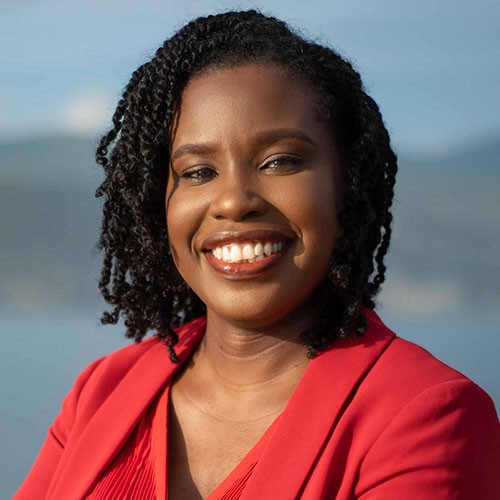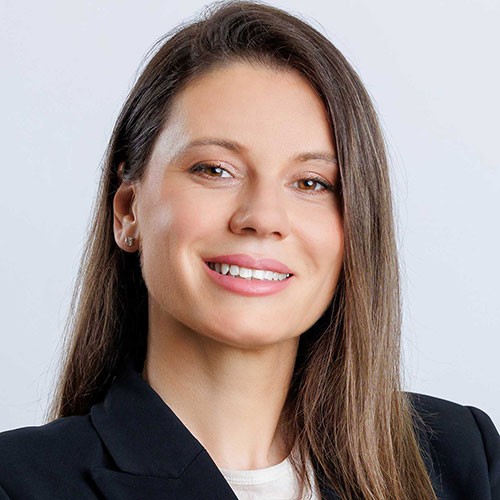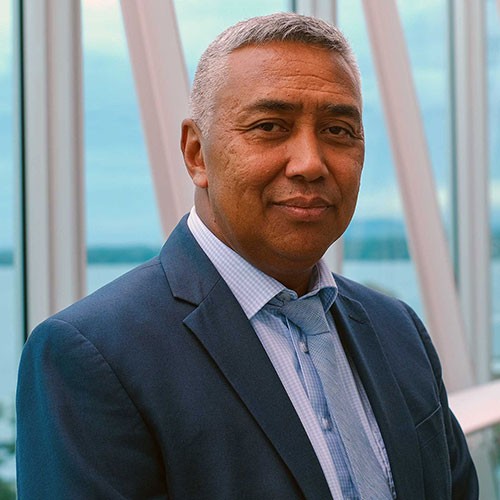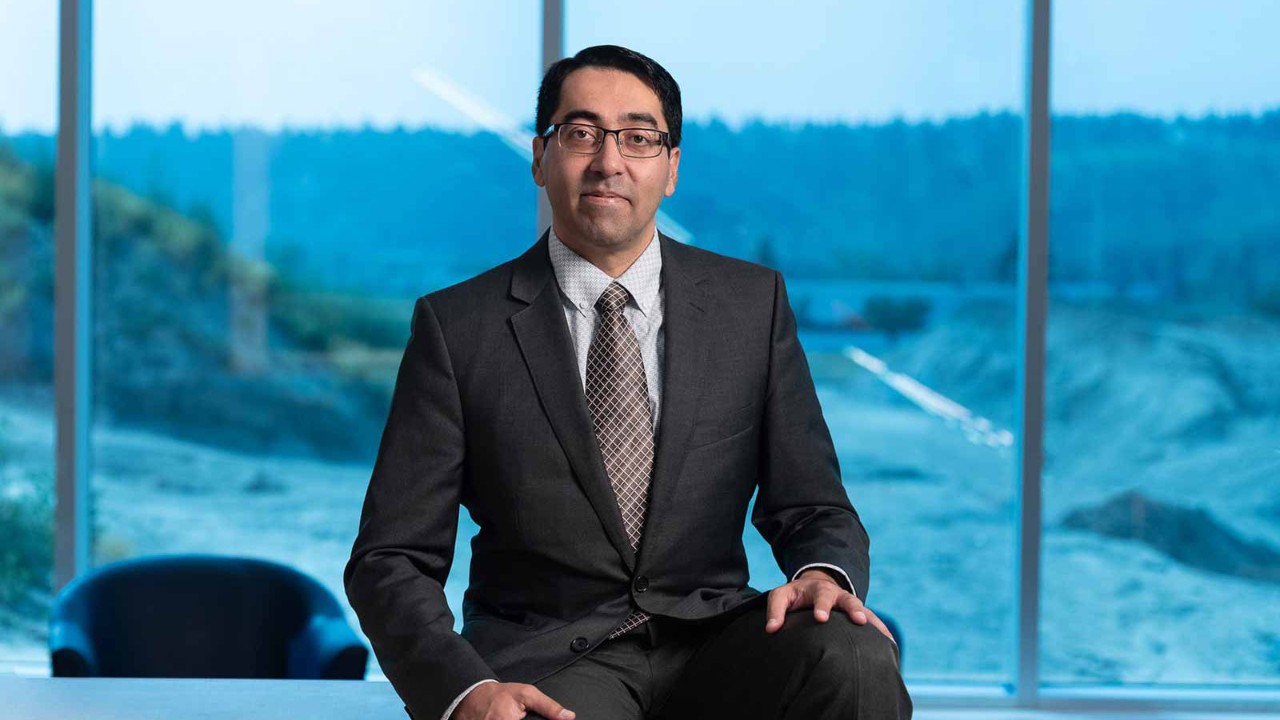
Shahid Qureshi FCCA has a warning. Coming to the end of his time as chair of ACCA Canada, and having clocked up three decades as a business leader across multiple sectors, Qureshi says it may look like he’s comfortable with constantly seeking new frontiers, but ‘it’s not easy’. And it requires adaptability.
‘I’ve realised that the only constant is change,’ he says. ‘There is absolutely no way that you can run from change.’ And that includes essential life and career choices: ‘Change brings opportunities. The only way to really grow is to embrace change.’
‘ACCA is the cornerstone of my professional success’
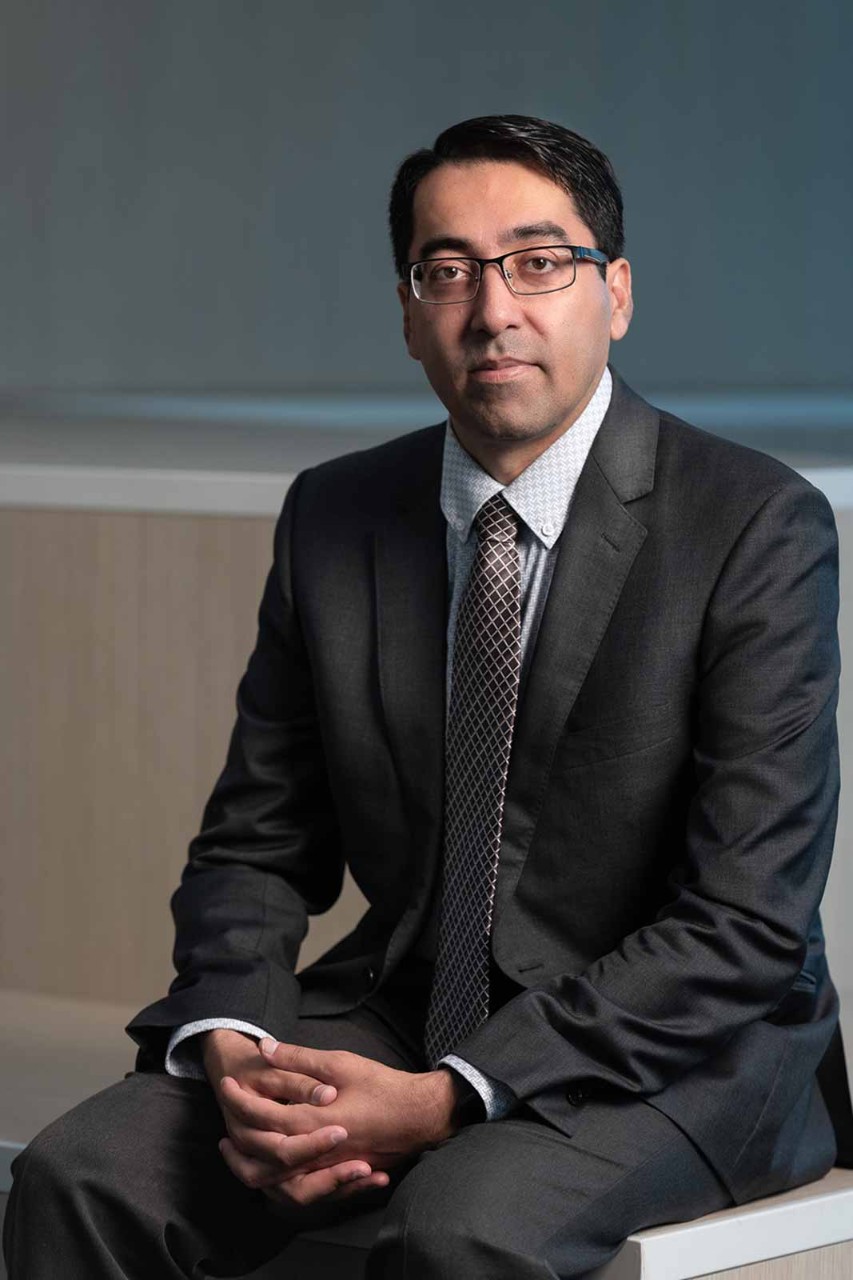
Global outlook
Qureshi’s career has been nothing if not consistently on the move. He may have begun his working life with KPMG in Pakistan but he has subsequently worked across the Middle East and the Cayman Islands before joining the firm in Calgary.
Qureshi is a successful entrepreneur and seasoned board chair with extensive international experience, holding numerous leadership and board roles. Currently, he serves as the board director and chair of the audit committee for a publicly listed Canadian private equity firm and the vice chair of the largest immigrant settlement agency in Alberta. He serves as the chair of the audit, governance and finance committees for several organisations across the public, private, and non-profit sectors.
Actively involved with technology startups, Qureshi possesses expertise in corporate governance, business strategy, risk management, and cybersecurity. Additionally, he is an author and reviewer of several international publications and research papers, frequently quoted and interviewed by international media and reputable global publications.
Qureshi’s breadth and depth of experience has offered a unique opportunity to view developments in technology across the public and private sectors as well as the profession. But conversation about his career and experience inevitably involves a discussion of how the daily life of accountants has been transformed, how it will shift again and what the constants may be at a time when technological evolution appears to be happening at a rate hitherto unseen.
‘Forget about what you learned in the past. Be a co-pilot in a business; add real value’
It is on the constants that we begin. He qualified early at KPMG, which he says won him the opportunity of international secondments. He is adamant none of it would have happened without his ACCA qualification: ‘ACCA is the cornerstone of my professional success.’
And it’s not just about skills, but also people and networks. ‘No matter which country I go to, no matter which city I visit, there is always an ACCA representative, an ACCA panel or ACCA management who is more than willing to help you,’ Qureshi says.
Advisory interests
Qureshi began his career in audit but an early realisation that clients didn’t entirely look forward to his arrival (‘Everybody hates you; it’s just the role’) prompted a search for wider experience in advisory and technology consultancy. This big-ticket experience has now placed him in a position to advise both big listed companies and governments.
That varied background has led Qureshi to deeper insights about the position of accountants. This is particularly poignant at a time when artificial intelligence threatens to take over many roles. Bluntly, Qureshi observes that ‘repetitive, structured work’ that doesn’t require ‘smart thinking’ is a ‘target’ for automation.
‘It’s more to do with value-added service in the work you’re doing as a team’
But adapting to the new landscape isn’t particularly easy. For example, spotting the skills of the future is a ‘cat-and-mouse’ game, Qureshi says. Many skills that were relevant the accountants in the 1990s have become ‘completely redundant’. The shelf life of any skill is reducing at an alarming phase necessitating the need to unlearn and re-learn the skills of the future.
That could be disorientating for a dedicated professional. Qureshi argues that accountants will need to seek out and acquire transferable skills, though he adds that there are no guarantees; not only will there be a race to acquire the right skills, but a competition for new jobs. This leads Qureshi to an observation that in order to stay relevant and competitive, accountants need to understand their organisations business model and strategy in depth; in addition to the traditional roles of accountants.
Future focused
‘My advice to the accountants of the future is forget about what you learned in the past, especially anything more than seven years old. It’s not about compliance. It’s no longer about compilation. It’s not about repetitive, manual, task-based work. Be a co-pilot in a business; add real value. Be involved in conversations that steer the organisation, that move the company in the direction where it wants to go.
‘And try to understand the bigger picture. Today, business is more than just profits. It’s about people, it’s about purpose, it’s about the environment.’
He adds: ‘It’s about sitting in a room, working together, adding real value to all the stakeholders. That’s going to help you become a more valuable player in an eco-system. It’s less about pure accounting skills; it’s more to do with value-added service in the work you’re doing as a team.’
‘Trying to understand what each stakeholder wants has been a tough journey’
These themes return when conversation turns to what Qureshi sees as his most notable achievements – which are, he says, ‘not an endpoint. It’s not a goal; it’s a journey.’ As a result, he eschews nominating a single role or job, pointing instead to something else more amorphous but much more telling: gaining expertise across many areas and being able to advise on them. They include accounting, but also digital business, ESG, business transformation and governance.
‘Navigating these diverse areas and understanding the needs of each stakeholder has been a challenging journey. I had to put in immense effort during difficult times. However, this combined experience has made me a stronger professional.’
And this brings Qureshi back to those core skills of the future: ‘You cannot be a good accountant without a deep understanding of the business.’
Does that mean he has any regrets? Surprisingly, he does. ‘No regrets in terms of something that would make you cry,’ he says. ‘Maybe I was a bit risk averse early in my career. I could have taken a little more calculated risk.’
